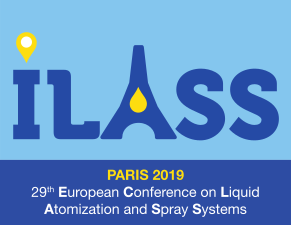Aeronautical gas turbine engines present the main challenge of increasing their efficiency while keeping the pollutant emissions below strict limits. Numerical CFD simulations of these devices are usually computationally unaffordable since they imply a multi-scale problem. In this investigation, a non-premixed natural gas lean-direct-injection burner is simulated though U-RANS and LES in non-reactive conditions. The geometry considered is the gaseous configuration of the KIAI (Knowledge for Ignition, Acoustics and Instabilities) combustor, for which quality validation data is available. Fuel is directly injected in the combustion chamber and surrounded by air from a radial swirler corresponding to a global equivalence ratio of 0.75. This work focuses on investigating the impact of an Adaptive Mesh Refinement algorithm in the accuracy and the computational cost in the evaluation of U-RANS simulations and its application to LES in predicting the flow recirculation zones and the fuel-air mixing degree generated within the combustor. Results show a good agreement of U-RANS and LES with AMR in capturing time-averaged velocity profiles compared against experimental data. Meanwhile, LES demonstrate more accurate predict results in terms of fluctuations and a greater ability to the unsteady fluid dynamic structures, as expected.
|
|
|
Proceedings > Papers by author > Carreres MarcosStudy about the influence of an automatic meshing algorithm on numerical simulations of a gaseous-fueled Lean Direct Injection (LDI) gas turbine combustor in non-reactive conditions
1 : Universitat Politècnica de València
* : Corresponding author
Camino de Vera, s/n 46022 Valencia -
Spain
|
| Online user: 61 | RSS Feed |

|


